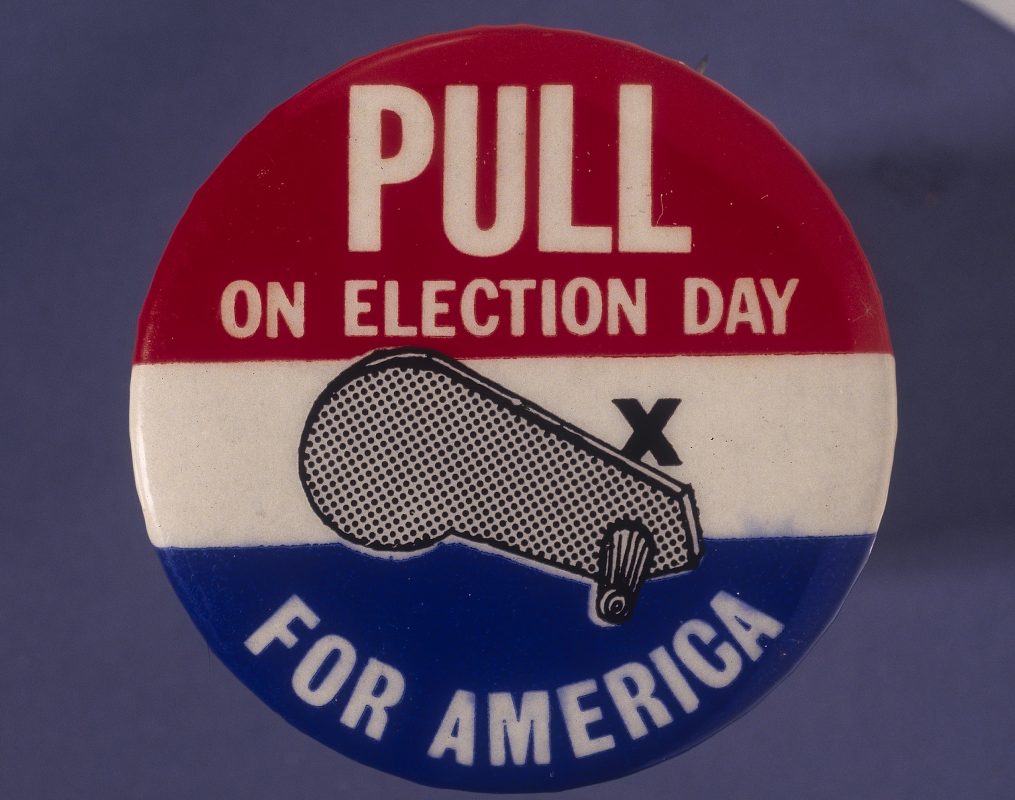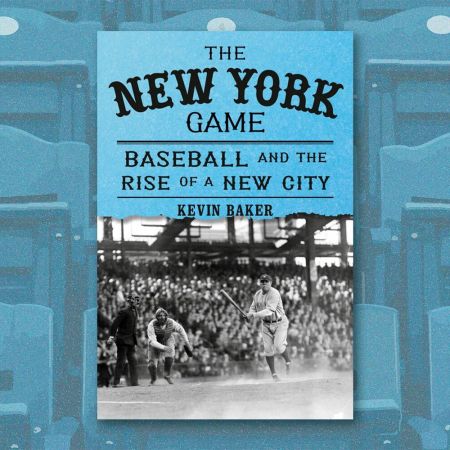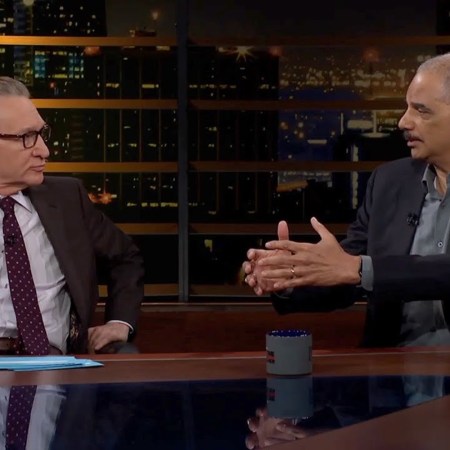“Democracy is the worst form of government except for all those other forms that have been tried.”—Winston Churchill
Whether you’re conservative, liberal or smack in the middle of the political spectrum, there are probably aspects of our government that frustrate you. The 2018 American Constitutional Confidence Poll found just 40 percent of those surveyed were satisfied with how American democracy currently functions. Yet the people running it remain oddly difficult to replace. The House of Representatives has seen at least 85 percent of its incumbents get reelected every election since 1950. That figure reached an absurd 97 percent in 2016. And the Senate is littered with people like 85-year-olds Chuck Grassley (37 years on the job and counting) and Diane Feinstein (26 and on the verge of another term), though they have a ways to go to approach Strom Thurmond status—he served over 47 years and turned 100 in office.
One thing about our democracy does consistently change, however: Our elections themselves. So just how did we end up with our current voting systems and customs? And how might they evolve going forward—for good or for ill? Jim Manley, who served a dozen years as Senator Edward Kennedy’s press secretary before going on to work for Senate Majority Leader Harry Reid as his senior communications advisor, told RealClearLife that one trend during his career has been observing people become “so cynical about politics.” If we aren’t careful, future elections could further stoke that contempt.
When Do We Vote? “Tuesday next after the first Monday in the month of November of the year in which they are to be appointed.” Thus, in 1845 Congress standardized the day presidential electors were chosen. Previously, states had been provided a 34-day window during which they could hold a vote. This flexibility made a certain sense when information traveled at the speed of horse. But America’s first railroad opened in 1830 and the first telegraph message was sent from Washington, D.C. to Baltimore in 1844. Suddenly, it was possible for a state with a later election date to discover that the presidential race was already all but over.
A common Election Day seemed like common sense. Nevertheless, it would be another 27 years before the House of Representatives fell in line and over 40 beyond that before the Senate joined the “Tuesday next after the first Monday” party.
And the date itself? The theory was voters needed ample travel time to reach distant polling stations. With Sunday the Sabbath and Wednesday usually market day for farmers, Tuesday got the nod—head out on Monday, vote early Tuesday, back in time for business.
Of course, we now have cars and buses and subways, making that horse-and-buggy calculus for voting an anachronism. Not to mention the fact that farmers as a share of the nation’s workforce had shrunk to 2 percent of the U.S. population by 1988. Which is why groups like Why Tuesday? advocate a shift to weekend voting. They’re also critical of how states now have the same Election Day but otherwise take widely different approaches to balloting. These range from permitting all-mail voting to weeks of early and no-excuse absentee voting to forbidding early voting and requiring an excuse for absentee ballot. New York, for instance, requires you to mail an application with your reason “no earlier than 30 days and no later than seven days before the election.”
This state-by-state approach can be seen as communities adopting systems that best reflect their particular values or outlook. Unfortunately, historically it’s all too often resulted in citizens being denied a say in their government.
Who Gets to Vote? When the Constitution was written, less than 25 percent of the population was eligible. Then, as now, most people weren’t white males 21 or older who owned property. Over many, many decades and five constitutional amendments, our voting franchise has slowly expanded.
The 15th Amendment: Ratified in 1870. “The right of citizens of the United States to vote shall not be denied or abridged by the United States or by any State on account of race, color, or previous condition of servitude.” Meaning African-American men at last had the right to vote. (In theory, at least—more on this momentarily.)
The 17th Amendment: Ratified in 1913. “The Senate of the United States shall be composed of two Senators from each State, elected by the people thereof, for six years.” While legislatures still eagerly engage in gerrymandering—shaping districts in an attempt to ensure the party in power stays this way—the direct election of U.S. Senators at least eliminated one of the incentives to create Congressional districts that look more like Rorschach tests than voting communities.
The 19th Amendment: Ratified in 1920. “The right of citizens of the United States to vote shall not be denied or abridged by the United States or by any State on account of sex.” Suddenly, there was a second gender whose votes were worthy of candidates’ attention on Election Day. (Though it should be noted that women’s suffrage had already been permitted in a number of states.)
The 24th Amendment: Ratified in 1964. “The right of citizens of the United States to vote in any primary or other election for President or Vice President, for electors for President or Vice President, or for Senator or Representative in Congress, shall not be denied or abridged by the United States or any State by reason of failure to pay poll tax or other tax.” African-Americans had possessed the vote for decades, but that didn’t mean every state would let them use it. Poll taxes, literacy tests, needlessly complex registration procedures and other measures often rendered the vote effectively whites only again. Louisiana in particular launched a ruthless campaign of restrictions. Between 1896 and 1904, they reduced the number of registered black voters from over 130,000 to just 1,342.
Even today, some would argument this amendment is under assault. Georgia Secretary of State Brian Kemp has created, at minimum, the appearance of a conflict of interest by overseeing a campaign against voter fraud that has removed thousands of voters from the rolls while he himself is running for governor against Stacey Abrams, who is attempting to become America’s first black woman to hold that office. Kemp is in the position of potentially denying voter access or even annulling votes for his opponent and/or permitting questionable votes for himself. Civil rights groups have sued, arguing he has overseen a process that will “disproportionately and negatively impact the ability of voting-eligible African-American, Latino and Asian-American applicants.”
The 26th Amendment: Ratified in 1971. “The right of citizens of the United States, who are eighteen years of age or older, to vote shall not be denied or abridged by the United States or by any State on account of age.” It seems a reasonable assertion that if you’re old enough to serve and die for your country, it should consider you old enough to vote. Yet it took America decades to get these two ideas in sync. In 1863, the U.S. required all able-bodied men between 20 and 45 to register for the draft. The Confederacy had already gone lower, requiring draft registration for white men between 18 and 35. In 1940, Congress required all men from 21 to 35 to register for the draft—it dropped to 18 as World War II progressed. Only during the Vietnam War did the voting age at last go to 18 as well.
These amendments brought us where we are now: A nation where those 18 and up can vote regardless of race, gender or financial standing. However, there are still some notable restrictions. Nearly every state bans voting in prison, for example, and some states still deny the franchise to convicted felons who have completed their sentences. The Sentencing Project estimated that nearly 6 million Americans have currently or permanently lost their right to vote because of a felony conviction.
Simultaneously, the ways that the U.S. conducts elections has also evolved.
How We Vote. Counting paper ballots is a slow process and we are a nation with things to do. We have continually strived to speed it up already, usually with a helping hand from technology. In the 1890s, New York inventor Alfred J. Gillespie created a voting machine that kept a running total. The first patent for an electronic voting machine (helpfully called the “Electronic Voting Machine”) came in 1972. Over a dozen states have fully leaped into the future by using electronic voting machines without a paper trail. Which sounds great, except if anything suspicious happens during an election, it’s impossible to perform an audit and discover what actually occurred.
Which leads us to the present and some concerns for the future.
How Secure Are We? America has a rich history of questionable election results. Prior to reaching the presidency, Lyndon B. Johnson was involved in two notorious Texas U.S. Senate races. He lost in 1941 but in 1948 squeaked out a victory by 87 votes to earn the nickname “Landslide Lyndon.” (He would grow into it—his 1964 presidential victory saw him claim over 60 percent of the U.S. vote.) This was a time when Texas churned out suspicious vote totals for all sorts of candidates. In 1948, Johnson won Duval County 4,622 to 40. Six years earlier Coke Stevenson—Johnson’s ’48 opponent—received 2,836 votes there, while his five opponents combined for just 77.
It’s hard to look at results like these and not feel something’s amiss. Did someone tamper directly with the ballot box? Maybe. What if it’s just proof of how strong party machines were in the region? When the boss said this is our candidate, everyone went to the polling station and dutifully followed the order. Neither of these options reflects particularly well on a democracy. However, one is clearly illegal and the other could be viewed as (in political terms) something to celebrate—after all, people wouldn’t be so loyal to the party if they weren’t happy with it, right?
Which is to say Finley Peter Dunne’s satiric 1895 observation that “Sure, politics ain’t bean-bag. ‘Tis a man’s game…” has always rang depressingly true about American elections. Particularly today, as politicians on both sides of the aisle see all sorts of threats to our electoral process.
The Unlikely. President Trump has blamed his loss in the 2016 popular vote on fraud, insisting sans proof there were “millions of people who voted illegally” in 2016 and that in “many places, like California, the same person votes many times.” There is currently zero evidence for either assertion. In particular, this is improbable because:
—The number of Americans who can vote and actually do so is depressingly low. Less than 56 percent of the voting-age population participated in the 2016 election. California was hardly a shining beacon: Less than half voted out of an estimated voting age-population of nearly 30 million. Even if you only include Americans who registered to vote, that still means 20 million registered Americans didn’t bother in 2016. (And that’s in a presidential election. Midterms get even less love: 36.4 percent of the voting-age population participated in 2014.) If millions and millions of people are voting multiple times and otherwise casting ballots illegally, it’s heartbreaking to think how limited our voter participation would be without fraud.
—Why bother with an insanely complex form of fraud that involves millions of participants when a handful of folks with laptops can have the same impact? Which leads us to…
The Plausible. Equifax. Yahoo. The NSA’s own hackers. Those are just three of the major hacking victims of 2017. Even seemingly secure systems can be taken down by human carelessness. In just the last week it was reported that the US Geological Survey had been infected by malware. How? Seems an employee loved to visit porn sites and in the process of doing so picked up a few unseemly bits of code that wound up infecting a government network.
Could our voting machines potentially be hacked? Unquestionably. (Again, the NSA’s own hackers have taken a hit.) And this possibility sets up the best scam of all.
The Almost-Too-Easy. 2018 Defcon—the world’s largest hacking conference—found that there are even easier targets than voting machines. They decided to go after websites affiliated with elections, such as those used for voter registration or to announce election results. Creating simulations of the sites, they found preteens could seize control in a Domino’s Pizza-esque 30 minutes or less. Then these young hackers would post that, for instance, Kim Jong-un had an unexpectedly strong showing, in the sense that he collected a cool quadrillion votes.
Okay, that’s a headline that even the North Korean media would recognize as joke. But what if a team of hackers decided to push a more plausible narrative? It’s known that foreign nations (notably Russia) have used social media to spread lies online in a disinformation campaign against American voters. Theoretically, they might also hack a results announcement and post an incorrect victory. Then they spread this result online quickly and widely. (Maybe they take over the other candidate’s social media accounts and post a “concession”: West Virginia U.S. Senator Joe Manchin reported his accounts were hacked just days before the election.) Particularly if the attack occurred in a state that doesn’t have a paper trail, even confirming the true vote totals and an announcement of the actual winner wouldn’t erase all the damage. People could choose to continue to believe the original (read: fake) announcement was correct. Their faith in the entire election would be shaken, if not destroyed.
And the trust between the two parties—shaky to begin with at the moment—would take another hit.
Jim Manley also noted that one of Ted Kennedy’s greatest gifts was his ability to cross the aisle: “The smart Republicans knew that if they cut a deal with Senator Kennedy, his word was good. There was a good chance of getting something accomplished. He never felt that compromise was a dirty word.
“Whereas today everybody runs away at the first sign of it.”
Understandably, the months leading up to an election do not inspire feelings of bipartisanship—somebody’s gotta lose. Manley hoped American politics will move in a less hostile direction: “Something’s gotta burst, something’s gotta relieve the pressure.” He just doesn’t know when: “I was hoping it was going to occur an election cycle or two ago.”
The wait continues. Happy voting.
This article was featured in the InsideHook newsletter. Sign up now.























